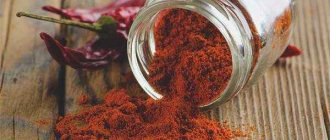Importance of phosphorus for humans
Phosphorus plays a large role in many chemical processes in the body. For example, without it, mental and physical activity is impossible, since it is thanks to phosphoric acid formed in the body that muscle contraction occurs, which is necessary not only for movement, but also for respiratory and other processes.
The element is actively involved in processes such as the division and growth of cells in the body, as well as in the very important process of using and storing all the genetic information inherent in a person.
It has a huge impact on the activity of many vitamins that are important for proper acid-base balance, and their benefits are undeniable. Phosphorus is necessary for both bones and teeth: after all, it is this element, as calcium phosphate, that is basic for tissue of this type.
This chemical element is also indispensable in the body’s metabolism: with its help, proteins and carbohydrates are produced in humans, and it helps to absorb many nutrients, in particular glucose.
The role of phosphorus in the human body is difficult to underestimate, and therefore it is very important to understand the danger of its deficiency and from which products the microelement is best absorbed by humans.
Sea fish: possible harm to the product
In some cases, sea fish can harm a healthy person even in the absence of any contraindications to its consumption. This product may lose its beneficial properties under the influence of the following factors:
— Pollution of water bodies. Every year, the environmental situation in the world is only getting worse; tons of industrial waste, including quite toxic ones, are dumped into the seas and oceans. Underwater inhabitants absorb harmful substances, as a result of which sea fish may contain mercury, cadmium, lead, arsenic and a number of other dangerous elements that can cause significant harm to the health of the person who eats such a product.
— Fish diseases. Sea water is a habitat for a number of dangerous bacteria and helminths that parasitize the body of fish. When eating sick individuals, there is a high risk of infection.
— Use of chemicals during cultivation. When marine fish are kept in a company environment, hormonal compounds are often used to stimulate rapid growth. The components of these substances remain in the organs and tissues of individuals and are often dangerous to humans.
— Freezing and subsequent defrosting. In areas far from the coast, it is impossible to purchase fresh sea fish; during long-term transportation, the product is subject to freezing, and this often happens more than once. As a result, the “meat” of marine inhabitants loses most of its beneficial substances.
In other words, fish grown in unfavorable conditions or repeatedly frozen and thawed will, at best, lose its beneficial properties, and at worst, cause harm to the human body.
Phosphorus deficiency
Lack of phosphorus in the body is a fairly rare phenomenon. Basically, a person receives the required amount of this element from food. A lack of phosphorus can occur if there are severe dietary violations, for example, an almost complete absence of protein foods and abuse of alcohol and sweet carbonated drinks.
Quite often, people who follow a strict vegan, vegetarian or raw food diet for a long time, eating mainly vegetables and fruits, especially if they grew on lands poor in phosphorus, face a deficiency of this element. Such people are recommended to undergo regular examinations by a doctor and, if necessary, take phosphorus supplements selected individually.
A deficiency of this element can also occur as a result of various hormonal disorders and many chronic diseases.
What are the symptoms of phosphorus deficiency? They can be different:
- strong causeless weakness;
- malaise;
- sudden mood swings;
- nervous exhaustion;
- complete lack of appetite;
- pain in muscles, joints;
- severe night and daytime cramps;
- absent-minded attention;
- sharp memory deterioration;
- frequent colds for no apparent reason.
All of the above signs indicate that there is a severe lack of phosphorus in the body; you should consult a doctor and urgently include healthy foods rich in this microelement in your diet.
How is fish useful?
People have long known that fish dishes are very healthy. Fish contains many microelements and vitamins that are beneficial for the body. It is worth saying that the biological value of fish is higher than animal meat. So what are the benefits of fish?
A fifth of fish is protein. The human body needs to consume protein every day, at the rate of 0.8 grams per 1 kg of weight. A lack of protein in the body affects performance and resistance to infections. In addition, it is a building material for the body. Therefore, it is important to include fish products in your diet. It is also necessary to remember that fish is digested in the body faster than animal meat.
Fish contains a lot of fatty acids, which significantly reduce the risk of cardiovascular diseases. In addition, fish oil contains vitamins A, D and E, which are necessary to strengthen bones and muscles and for the growth of the body.
Many people do not know the benefits of red fish. It is worth saying that scientists have discovered a number of Omega-3 fatty acids in it, which cleanse the blood of cholesterol and fat.
What is useful about fish is the minerals it contains, which are necessary for the health of the body. First of all, these are calcium, phosphorus, iodine and iron. Iodine is necessary for the normal functioning of the thyroid gland and brain function. 100 grams of fish meat contains 0.2 milligrams of iodine, which is the daily dose for humans.
Fluoride, which is abundant in fish, is good for teeth and strengthens bones and tendons. Therefore, people involved in sports are recommended to include fish in their diet.
Phosphorus is necessary for the functioning of the nervous system. A lack of phosphorus in the body can cause fatigue and lethargy. In addition, it is involved in the growth of bones and teeth. Cod and fish oil contain especially a lot of phosphorus.
Fish meat is an important component of dietary dishes. Therefore, for the treatment and prevention of stomach diseases, it is recommended to consume lean fish and fish broths. And for people suffering from liver disease, boiled cod, pike and bream will be useful.
Fish is an extremely valuable product. It contains many essential substances and is easily absorbed by the body. However, no matter what the fish is useful for, it must be remembered that the food should be varied. Fish meat provides more benefits in combination with other products, for example, vegetables, herbs, and dairy products. Now you know what is healthy in fish.
Excess phosphorus
It also happens that too much phosphorus accumulates in the body, which leads to undesirable consequences:
- poor absorption of calcium, which leads to its leaching from the body and, as a result, makes bones and teeth very fragile;
- the formation of salts and stones in the kidneys - the reason for this is precisely the active leaching of calcium through the kidneys;
- diseases of the liver and gastrointestinal tract;
- frequent bleeding.
It becomes clear that both a lack of phosphorus and its excess can have a negative effect on the body. To prevent this from happening, you should carefully plan your diet and make it varied, without focusing on any one type of food.
Where is phosphorus found?
Products containing this useful element are very common and available to every person. It is worth noting that their use should be combined with products containing calcium, since it is phosphorus that helps the latter to be perfectly absorbed in the body, making bones and teeth strong. In this case, all chemical processes will proceed perfectly, in particular, the necessary vitamin D will be synthesized by the body regularly and in sufficient quantities.
Phosphorus content in products per 100 g in descending order:
- walnuts – 564 mg;
- dairy and meat products – 550 mg;
- beans – 541 mg;
- peas – 330 mg;
- chicken and turkey – approximately 380 mg;
- sea fatty fish – 350 mg;
- river fish – 300 mg;
- wheat flour – 270 mg;
- hazelnuts – 230 mg;
- chicken eggs – 215 mg;
- bread – 205 mg;
- rice – 97 mg;
- vegetables – approximately 30-60 mg.
The benefits of fish
There are many types of fish that are beneficial to humans to one degree or another. Let's look at the most popular and best-selling types.
River
River fish is considered a dietary product - it contains easily digestible protein, which helps keep the body in shape and get rid of excess weight. It also contains various beneficial substances, thanks to which it:
- strengthens bone and dental tissue;
- prevents the development of osteoporosis;
- improves the function of the reproductive system;
- strengthens the walls of blood vessels;
- serves as a prevention of strokes and disorders of the cardiovascular system.
Important! For food, it is better to eat small or medium-sized fish (by the standards of this species), since large individuals accumulate harmful substances in their tissues over time.
By regularly including this product in the menu, you can get rid of many health problems:
- strengthen the heart muscle;
- optimize brain function;
- get rid of insomnia, reduce the risk of stressful conditions;
- strengthen the immune system;
- improve the condition of hair, skin, nails;
- reduce the likelihood of developing diabetes, heart disease, and thrombosis.
The vitamin and mineral composition of the most common fish species is presented in the table:
| Fish name | Vitamins | Micro- and macroelements | Peculiarities |
| White amur | A, E, D, B1, B4, B6, B12, K, RR | Calcium, phosphorus, magnesium, iron, potassium, sodium, Omega-3 and Omega-6 | |
| Carp | A, E, D, C groups B, K | Iron, calcium, iodine, potassium, phosphorus, magnesium | |
| Muksun | A, E, D, K, RR | Omega-3 and Omega-6, magnesium, iron, potassium, calcium, phosphorus | Muksun is especially useful for men, as it improves the functioning of the gonads and helps normalize sexual function. |
| Burbot | fat-soluble vitamins of group B, as well as A, E, PP | iodine, copper, zinc, manganese, phosphorus, calcium | |
| Pangasius | A, E, PP, Groups B, C | Phosphorus, magnesium, calcium, potassium, iodine | |
| Pelengas | A, E, RR, K, group B | Magnesium, iron, calcium, fluorine, potassium, iodine, Omega-3 and Omega-6 unsaturated fatty acids | |
| River perch | A, E, K, the whole range of B vitamins | Increased content of phosphorus, calcium, magnesium | |
| Rotan | A, E and C, B2, B12 | Phosphorus, fluorine, calcium, iron and magnesium | A dietary product - low-calorie meat, it cleanses the body of toxins. |
| Whitefish | A, E, D, B2, B6, B12, PP | Iodine, iron, fluorine, calcium, magnesium, potassium | |
| Som | A, B, C, E and PP | Potassium, magnesium, zinc, fluorine, sulfur | 200 g of catfish, when consumed daily, meets the body's need for protein of natural origin, which is especially important for the health of adolescents. |
| Zander | A, C, E, groups B | Iron, calcium, magnesium, fluorine, phosphorus, sulfur | |
| Cheese (peled) | A, E, D, PP, K, group of vitamins B | Iodine, calcium, iron, phosphorus, Omega-3 and Omega-6 | Meat is low in calories. |
| tilapia | A, E, D, B2, B4, B6, B12 | Calcium, iron, potassium, sulfur, phosphorus, zinc, cobalt | |
| Trout | vitamins A, C, E, group B | Calcium, magnesium, phosphorus, iodine, potassium | Trout is the most environmentally friendly and safe fish. Where it lives, there is probably no pollution. |
Nautical
Marine inhabitants, unlike river inhabitants, are endowed with a high content of complete protein, which is quickly and easily absorbed and digested by the body. They are also considered an important supplier of various vitamins, essential amino acids, micro- and macroelements. These substances have a beneficial effect on all body systems:
- improve the functioning of the heart, liver, and digestive tract;
- increase mental activity;
- promote rejuvenation and rapid cell regeneration;
- normalize the functioning of the sex glands;
- prevent the formation of blood clots;
- reduce the level of bad cholesterol;
- cleanse the body: remove waste, toxins, harmful substances.
Important! When
eating marine fish, it is prohibited to use the head, as it can accumulate harmful substances and toxins.
A description of the most suitable species of marine fish for consumption is presented in the table:
| Fish name | Vitamins | Micro- and macroelements | Peculiarities |
| Grenadier | A, C, E, RR, group B | Iron, magnesium, calcium, potassium, zinc, chromium, cobalt, Omega-3 and Omega-6 | Low-calorie meat - only 32 kcal per 100 g. |
| Char | C, E, B6 and B12 | Magnesium, iron, calcium, high Omega-3 content | |
| Pink salmon | RR, A, E, D, B4, B9, B12 | Selenium, sulfur, cobalt, chromium, phosphorus, iodine, iron, unsaturated acids, | |
| Dorado | B1, B5,A, B12, PP, B2, B9, B6 | Calcium, magnesium, zinc, copper, sodium, phosphorus, iodine | Leader in iodine content. |
| Dory | A, E, N, C, K, RR and group B | Calcium, magnesium, phosphorus, iron, zinc, manganese, chromium, fluorine, molybdenum | |
| Catfish (sea wolf) | A, E, B1, B2, B6, B12 and PP | Iodine, phosphorus, potassium, magnesium, sodium, sulfur, bromine, fluorine, copper, iron, zinc | Ideal for athletes and teenagers during periods of intense growth. |
| Flounder | A storehouse of vitamins A and D, also present E, PP, K, C | Iodine, phosphorus, iron, cobalt, high selenium content | Flounder contains a lot of protein - up to 20% and a small amount of fat - up to 3%. |
| Chum salmon | A, E, RR, C, K | Zinc, iron, nickel, potassium, phosphorus, fluorine, calcium | |
| Coho salmon | A, C, E, K, RR, group B | Sodium, chlorine, calcium, phosphorus, nickel, molybdenum | |
| Congrio (king clip) | A, D, E, B1, B2, B6, B12 | Iodine, calcium, phosphorus, molybdenum, cobalt, iron, selenium | |
| Smelt | A, K, RR, B4, B12 | Potassium, calcium, phosphorus, zinc, sodium, fluorine, selenium | Smelt is considered an important source of protein - up to 15.4% per 100 g. |
| Ice fish | A, E, C, B1, B2, B6 and B12 | Magnesium, chromium, cobalt, iodine, selenium, sulfur, potassium | Low-calorie fish |
| Loban | A, E, PP, B2, B4, B12 | Magnesium, potassium, iodine, sulfur, phosphorus, iron, high Omega-3 content | |
| Oily fish | A, K, PP, D and B12 | Selenium, magnesium, phosphorus, cobalt, iron, zinc | Oily fish helps cope with painful menstruation in women, as well as menopausal disorders. |
| Menek | A, C, E, B12 | Increased content of iodine, selenium, phosphorus | |
| capelin | A, E, B2, B4, B9, RR | Phosphorus, zinc, magnesium and cobalt | |
| Milkfish (hanos) | A, E, C, K, RR | Calcium, potassium, magnesium, high iodine content | |
| Sea hare (rabbitfish or chimera) | A, C, K, RR, B2, B12 | Phosphorus, iodine, magnesium, calcium, sodium, zinc | |
| Sea bass | A, PP, C, D, E, group B | Magnesium, phosphorus, sulfur, iodine, chromium, calcium, sodium, potassium, chlorine, zinc, nickel, high Omega-3 content | |
| Sole | B, A, RR, C, D, E. | Magnesium, iron, zinc, copper, manganese, fluorine, sulfur, molybdenum, nickel | |
| Pollock | E, PP, K, ascorbic acid | Potassium, iron, magnesium, phosphorus, zinc, Omega-3, 6 polyunsaturated acids | |
| Navaga | A, E, RR, C, B2, B12 | Magnesium, iron, iodine, zinc, phosphorus, chlorine | It is characterized by low fat content, good juiciness, softness and is recommended for dietary and baby food. |
| Red salmon | A, E, C, B4, B9, B12, RR | Phosphorus, magnesium, zinc, fluorine, iron, potassium, calcium | Useful for children, pregnant and lactating women. |
| Notothenia | A, PP, C, D, group B | Calcium, iron, iodine, sodium, fluorine | |
| Terpug | A, RR, C, B | Magnesium, zinc, iron, phosphorus, calcium, iodine, selenium | |
| Halibut | A, E, C, K, RR, B2, B12 | Iron, phosphorus, magnesium, potassium, calcium, zinc | |
| Gerbil | A, C, E, K, RR, group B | Magnesium, potassium, zinc, phosphorus, iron, cobalt, sodium, chlorine | |
| Haddock | A, E, C, group B | Selenium, iodine, zinc, bromine, calcium, potassium, magnesium | |
| Pompano (pompanito) | A, E, K, RR, group B | Selenium, magnesium, zinc, phosphorus, potassium, fluorine, iodine | |
| Blue whiting | A, E, K, B12 and D | Iodine, phosphorus, calcium, magnesium, sodium and sulfur | |
| Savorin | A, E, C, RR | Calcium, magnesium, sulfur, chromium, copper, iodine, cobalt | |
| Saida | A, B2, B4, B6, B9, C, E, K | Iron, iodine, calcium, potassium, magnesium, zinc, fluorine | Recommended for women who are pregnant, nursing mothers and teenagers. |
| Salaka | A, E, C, group B, RR | Calcium, chromium, cobalt, zinc, iron, magnesium | On the one hand, herring is beneficial due to the presence of a large number of amino acids, protein and minerals. But, on the other hand, it contains increased levels of cobalt and chromium, which, if consumed in large quantities, can cause harm: provoke poisoning of the body. |
| Salmon | A, E, C, D, B2, B9, B12 | Calcium, magnesium, potassium, iodine, selenium, sodium, zinc, phosphorus | Contains melatonin, which promotes natural skin rejuvenation and helps maintain sound sleep. |
| Seabass | A, C, K, E, B12 | Calcium, phosphorus, zinc, fluorine, chlorine, cobalt, magnesium | |
| Mackerel | A, B2, C, B12, PP, E, N and K | Calcium, magnesium, iron, zinc, cobalt | With daily consumption of mackerel, various allergic reactions may occur, as well as problems with the gastrointestinal tract. |
| Cod | A, C, E, K, B4, B9, B12 | Magnesium, iron, sodium, zinc, phosphorus, iodine, potassium, calcium | |
| Tuna | A, E, D, B2, B6, B12 | Iron, magnesium, sodium and calcium | Tuna meat contains protein that is 95% digestible. |
| Hake | A, E, C, RR, K | Magnesium, calcium, iodine, phosphorus, sulfur, iron, iodine | |
| Hokies | A, E, C, K, RR, group B | Iodine, phosphorus, zinc, calcium, magnesium, fluorine, chlorine | Regular consumption of khoki helps fight depression, bad mood and loss of energy. |
This is interesting: Halibut fish: description, benefits and possible harm to the body
The benefits of phosphorus for the human body
Phosphorus is a mineral that the body needs to perform a number of important functions. It is naturally present in many foods, but processing them can also add more phosphorus.
The body uses phosphorus to keep bones strong and healthy. Phosphorus also helps remove waste and repair damaged tissue.
Most people get enough phosphorus from their diet. However, people with certain medical conditions, such as kidney disease or diabetes, may need to adjust their intake of this mineral.
In this article, you will learn more about what foods contain phosphorus and its role in the body.
What is dietary phosphorus?
Phosphorus is a mineral that the body uses to form bones and teeth, and to produce proteins that help in the growth and repair of cells and tissues.
Phosphorus also plays a role in how the body processes carbohydrates or sugars. In addition, it contributes to the full functioning of such body systems and functions as:
- nervous system
- kidney function
- muscle contraction
- heart rate regulation
Dietary phosphorus is phosphorus that can be consumed by humans. Most people can get all the phosphorus they need from food sources.
Benefits for the body
Phosphorus has numerous beneficial properties because it affects many different systems in the body. Here are some of the beneficial properties of phosphorus:
- keeping bones and teeth strong
- aid in muscle contraction
- Helps with muscle recovery after exercise
- filtering and removing waste from the kidneys
- healthy nerve conduction throughout the body
- production of DNA and RNA
- control of energy use and storage in the body
What foods contain phosphorus?
Most people get enough phosphorus from their diet, especially if they eat plenty of foods that contain protein and calcium.
Most protein-rich foods are excellent sources of phosphorus. These products include:
- chicken
- turkey
- pork
- seafood
- seeds
- low-fat dairy products such as yogurt and cottage cheese
- nuts
Other low protein foods can also be good sources of phosphorus, but the body does not absorb it from these foods as easily. These include:
Squirrels
Fish is rich in proteins. It is an excellent source of energy and building material for fabrics. Fish is easily digestible, and its low-fat species - hake, cod, pollock, saffron cod, blue whiting, river perch, bream, pike - are lower in calories than meat. Fish is a popular dietary product.
But people with allergies should be careful. Proteins in fish are a common cause of allergies. It occurs in childhood and does not go away with age. Allergens do not depend on the type of fish and are not destroyed during cooking.
If you suspect you have any allergy symptoms, avoid all types of fish until you see a doctor.
Fish is an excellent source of protein. But allergy sufferers should be careful.
Daily intake of phosphorus
Phosphorus requirements vary by age and depend on whether a person has any medical conditions.
People generally need the following amounts of phosphorus per day:
- Children (0–6 months) : 100 mg
- Infants (7–12 months) : 275 mg
- Children (1–3 years) : 460 mg
- Children (4–8 years) : 500 mg
- Children (9–18 years) : 1250 mg
- Adults (19 years and older) : 700 mg
Pregnant and lactating women do not need additional phosphorus.
Risk of excess phosphorus intake
Getting too much phosphorus is not a problem for most people. However, people with chronic kidney disease or those whose bodies have trouble processing calcium may accumulate too much phosphorus.
When a person has excessively high levels of phosphorus in the blood, this mineral can pull calcium from the bones, making them weak. It can also combine with calcium to form deposits in the soft tissues of the body. These deposits can lead to an increased risk of heart attack, stroke, or death.
Recent studies have shown that excess phosphorus in the body may be more dangerous to human health than experts originally thought.
The authors of the 2020 study note that excessively high levels of phosphorus intake can cause the following negative effects in animals:
- calcifications in the vascular and renal systems
- kidney tube injuries
- abnormal levels of protein in the urine, which may indicate kidney damage
- premature death
More research is needed to determine the risk of too much phosphorus in humans.
Sea fish: what are the benefits of this product?
Regular consumption of seafood allows you to achieve the following positive results:
• the functioning of the digestive system is normalized due to the easy absorption of the product;
• the condition of the thyroid gland improves due to the high iodine content;
• the risk of tumor diseases and inflammatory processes is reduced due to the restoration of the balance of vitamins B, E and unsaturated acids;
• cholesterol levels in the blood are stabilized;
• the functioning of the cardiovascular system is restored and the likelihood of heart attacks and strokes is reduced, since sea fish contains a sufficient amount of potassium;
• brain activity increases;
• vision improves thanks to vitamins A and B 2.
Consumption of fish also allows you to get rid of extra pounds, since this product contains a small amount of calories. In addition, scientists have long established that residents of coastal areas who have the opportunity to regularly eat seafood have a higher life expectancy than “meat eaters.”
Risk of too little phosphorus
Most people get enough phosphorus from their diet, but some groups of people may need more of this mineral than others.
People who need more phosphorus include people with diabetes who take insulin to regulate blood sugar levels. People with alcohol-related illnesses may also need to increase their intake of this mineral.
The following medications may reduce phosphorus levels in the body:
- ACE inhibitors
- some antacids
- corticosteroids
- some diuretics
- some anticonvulsants
People who have diabetes or are taking any of the above medications should be aware of the symptoms of low phosphorus levels. These symptoms include:
- loss of appetite
- fatigue
- joint pain
- bone pain
- breathing problems
- electrolyte imbalance
- confusion
- irritability
In rare cases, people with dangerously low phosphorus levels may experience coma or other life-threatening complications.
A doctor can usually correct low phosphorus levels by treating the underlying condition. A doctor may recommend that people make dietary changes or take supplements to ensure they get enough phosphorus.
Benefit
Fish contains a lot of useful substances. There are also vitamins A, E, and minerals. In particular, phosphorus, calcium, iodine, iron. Depending on the variety, there are more of some elements, less of others.
Fish meat contains easily digestible protein, amino acids, and Omega. Having analyzed the composition, we can say about the benefits of fish:
- Fish meat contains high-quality protein. It is well absorbed and saturates the body with essential amino acids.
- With regular consumption of fish, blood clotting is normalized and the level of bad cholesterol is reduced. The product reduces the risk of vascular liming and capillary blockage.
- Research has revealed that fish dishes normalize the activity of the thyroid gland and have a beneficial effect on overall hormonal levels.
- Fish is famous for its high phosphorus content, which is necessary for muscles, tissues and bones. The vascular walls remain strong and elastic for a long time.
- Some varieties are very beneficial for the brain. Salmon and salmon activate mental abilities and increase performance.
- There are types of fish that prevent myopia and relieve eye fatigue. For example, pollock.
- Regular consumption of marine meat helps strengthen the nervous system and normalize sleep.
- Those who prefer fish are not obese. It normalizes fat metabolism. Many of its types contain a minimal amount of calories.
- Anyone who often has fish on their table can boast of strong nails, gorgeous hair and elastic skin.
Thus, the benefits of fish are multifaceted. Its importance is great for the health of the cardiovascular system, and for bone strength, visual acuity, and for immunity, and for the brain, and for beauty. The product contains Omega-3 and Omega-6 acids, which are necessary for the full functioning of the body. The beneficial effects of fish meat are felt by almost all systems of our body.
Unfortunately, not everything is so rosy. Only fish that grows in natural reservoirs that are not polluted by industrial waste is useful. Moreover, its growth was not stimulated by the ubiquitous hands of man.
Fish can be harmful and even life-threatening because it absorbs all the poisons contained in the water!
- Salts of heavy metals were often found in the meat of tuna or salmon. In particular, lead, cadmium, arsenic and even strontium. These substances are dangerous to human health.
- The older the fish, the more toxic elements it contains. And on the packages in the store the age of the seafood is not written.
- Rare fish farms can boast of the quality of their products. To increase mass, biochemical additives are used. Often sick individuals are also sold.
What could be the consequences of eating sick fish?
- Heavy metal salts harm the kidneys, adrenal glands and ovaries.
- Heavily infected individuals can cause cancer and infertility in men.
- Old fish often spoil the composition of the blood, disrupt metabolism and hormonal levels.
- Stomach irritation, dysbacteriosis and diarrhea are the “mildest” consequences of a spoiled fish dish.
The worst thing is that it is almost impossible to recognize sick fish in a frozen product. But you can try.
- Always look at expiration dates.
- Pay attention to the belly: it should be light. Yellowness indicates “antiquity.”
- It's better to buy cleaned fish. Most harmful substances accumulate in the intestines. And during storage, poisons pass into the meat.
Vitamins
Protein is far from the only nutrient that makes white fish such a valuable dish. It may not contain as many omega-3 fatty acids (if you don’t take into account the nutritious halibut) as red, but its varieties break records in terms of vitamin and mineral composition. B vitamins (B6 and B12) regulate the activity of the central nervous system and cardiovascular system, improve the functioning of the gastrointestinal tract, help the body cope with intense mental stress and depressive states, and strengthen its immune defense.
A and C found in seafood are among the most important vitamins in the body. Retinol is necessary for visual acuity, cell strength, skin and skeletal system, ascorbic acid promotes adequate carbohydrate metabolism and the production of steroid hormones.











